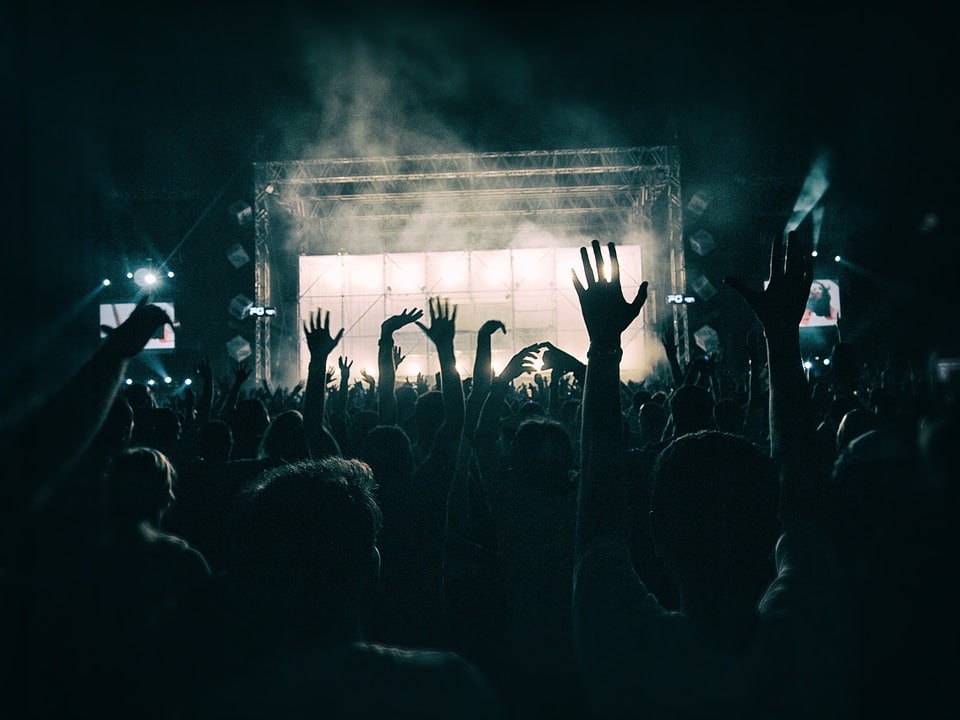Entertainment
Eurovision Explained, From ABBA To Zorra, As The Israel-Hamas War Overshadows The Song Contest

Malmö, Sweden – Scores of musicians, hundreds of journalists, and thousands of music enthusiasts have converged in Malmo, Sweden, as the Eurovision Song Contest prepares for Saturday’s jubilant, glitter-drenched finale.
But even Eurovision cannot avoid the world’s divisions. Thousands of pro-Palestinian protestors are expected in the city to call for a cease-fire in the Israel-Hamas conflict and criticize Israel’s participation in the event.
Here’s an introduction to what Eurovision is, how it operates, and what to look for.
AP – VOR News Image
What is Eurovision?
The short answer is that Eurovision is a music competition in which performers from around Europe and beyond compete under their national flags for the title of continental champion. Consider these the pop music Olympics.
The longer explanation is that Eurovision is an event that combines pop, partying, and politics, resembling a music festival, an awards show, and a United Nations Security Council meeting. It’s a crazy joyful festival that celebrates music’s unifying power, but it’s also a venue for politics and regional rivalries.
AP – VOR News Image
How does it work?
This year, the tournament will be held over many days in the Swedish coastal city of Malmo, which has entries from 37 countries. The country is hosting after Swedish singer Loreen won the competition last year in Liverpool, England.
After two semifinals, the artists have been reduced to 25, and they will compete in Saturday’s final in front of thousands of fans in the Malmo Arena and a global broadcast audience estimated at 180 million.
In an unusual move, the 26th finalist, Joost Klein of the Netherlands, was removed from the competition on Saturday due to “a complaint made by a female member of the production crew” that is being probed by police, according to organizers.
Nations may enter a solo act or a band. They can perform in any genre or language, but the regulations require them to sing live and limit their songs to three minutes. Staging has become increasingly extravagant, with spectacular pyrotechnics and sophisticated dance. This year is very great for topless male dancers.
After all of the acts have been performed, the winner is determined by a notoriously complex combination of phone and online votes from all around the world and rankings by music-industry juries in each Eurovision country. As the results are announced, countries move up and down the standings, and tensions rise. Ending up with “nul points,” or zero, is considered a national shame.
Eurovision’s musical style has evolved drastically since its inception in 1956. The early years of crooners and ballads gave way to cheery pop, as exemplified by possibly the greatest Eurovision song of all time, ABBA’s “Waterloo,” which won 50 years ago.
Euro-techno and power ballads are popular nowadays, but viewers choose rock, folk rap, and odd, unclassifiable music.
According to bookies, Swiss singer Nemo is a top contender, delivering “The Code,” a beautiful, operatic ballad. Nemo would be the first nonbinary performer to win the contest with a large LGBTQ+ following. A quarter century ago, Dana International became the contest’s first transgender winner.
Another nonbinary singer gaining traction is Ireland’s Bambie Thug, whose song “Doomsday Blue” is Gothic, passionate, over-the-top, and a true crowd-pleaser. They are the only contestants to bring a “scream coach” to Malmo.
Other acts expected to perform well include operatic Slovenian singer Raiven, Ukrainian rap-pop combo Alyona Alyona and Jerry Heil, and Spain’s Nebulossa, whose song “Zorra” sparked controversy because its title can be translated as an anti-female slur.
The performer with the most traction is Croatian vocalist Baby Lasagna. His song “Rim Tim Tagi Dim” is classic Eurovision: joyful, humorous, slightly emotional, and immensely catchy. It is already a major fan favorite.
AP – VOR News Image
WHY ARE SOME PEOPLE PROTESTING?
Eurovision’s tagline is “united by music,” its organizer, the European Broadcasting Union, works to keep politics out of the competition. But it frequently intrudes.
Belarus was kicked out of Eurovision in 2021 for its government’s crackdown on opposition, while Russia was kicked out in 2022 for its full-fledged invasion of Ukraine.
This year, there have been requests for Israel’s exclusion due to its actions in the conflict against Hamas.
Israel is competing but was forced to change the title of its song, which was previously titled “October Rain,” in an apparent reference to Hamas’ October 7 cross-border raid. Eden Golan, a 20-year-old vocalist, now performs the song “Hurricane.”
Thousands of pro-Palestinian activists marched through Malmo hours before Golan performed in Thursday’s semifinal, and another is planned for Saturday. Swedish police have launched a large security operation, with officers from throughout the country joined by reinforcements from Denmark and Norway.
SOURCE – (AP)